Karun Thakar Fund Project Grant Recipient Lokesh Ghai is an artist, researcher and design educator at the School of Design, UPES University in Dehradun, India. Here Lokesh introduces himself and his project Revitalising the Choga.
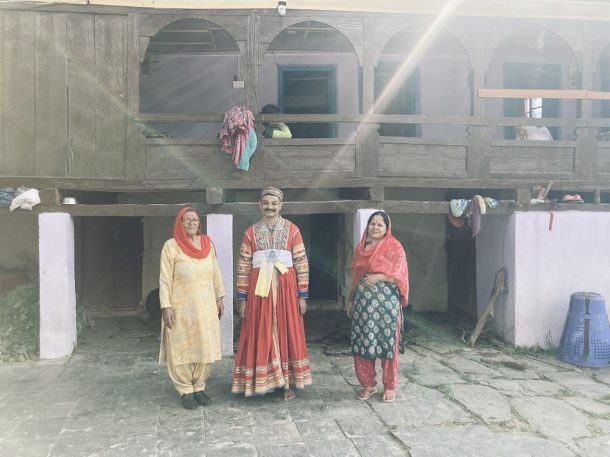
An explorer at heart, being alive for me is about connecting the dots between culture, craft, heritage, art and design. Being based between the textile hub of India, Ahmedabad-Kutch, and the new capital town of the mountains, Dehradun, allows me to travel, discover and have a dialogue with diverse cultures, people and their craft practice.
Having worked as an artist/educator in fashion design and craft clusters in India over two decades, I feel there is much more that could be done to record Indian systems of garment construction. While there are publications on the historical facts of traditional garments, there are very few studies on the techniques used to actually make stitched heritage clothing. Most of published studies approach the topic by de-constructing heritage clothes; but the voice of the makers and their cultural context is absent. Despite being a heritage passed on for generations, the knowledge of cutting and tailoring is not given its due acknowledgment as a craft.
This project focuses on the ‘choga’, a traditional, distinctive, culturally significant over-garment worn by men and women in Himachal-Pradesh and parts of Uttarakhand. The choga is hand-crafted by specialist tailors using local materials. ‘Revitalizing the choga’ is an ambitious project, where I will research, document, and learn the making of choga within its cultural context. Thereafter, I will collaborate with village artisans to co-create of new chogas. Finally, I will organise a pop-up interactive public event, showcasing and celebrating the project’s outputs. The project seeks to revitalize the choga, elevating critical appreciation of the garment’s cultural richness and giving agency to the community to ensure integrity in its continued use.
This is an action research and creative collaboration project that will take practice beyond conventional academic approaches by exploring creativity through collaboration, avoiding the pitfalls of design intervention. My proposal builds on the methodology of ‘apprenticeship’ that I adopted as my approach for my MA research, and through which I learned the construction of kediyun in a cultural context, based in the desert of Kutch.
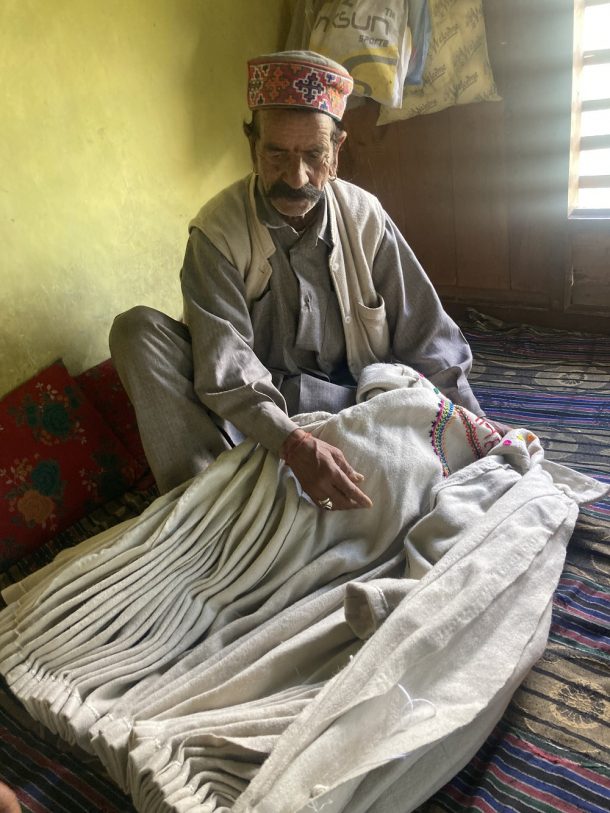
The giving, owning and wearing of choga carries great significance for both men and women of the semi-nomadic Gaddi shepherd’s community. Gaddis are a minority tribe, designated as a ‘scheduled tribe’ in India. With changing lifestyles, the choga is now reduced to a ceremonial garment worn occasionally for festivals and ceremonies. The making of choga is specialised knowledge, with few makers still practicing and the next generation not interested in learning. This distinctive garment is on the brink of disappearing – it is no longer in daily use, and there has been a decline in the number of skilled makers/tailors. ‘Revitalizing the choga’ seeks to break this cycle of decline.
Making new chogas, in collaboration with local artisans, would open new avenues for this endangered craft. The collection will be co-designed and co-produced with local tailors, hand spinners and handloom weavers, and establish the continuity of the heritage craft practice for both local consumers and wider national/international value and appreciation. The project will contribute to raising awareness and appreciation for the cultural heritage of the local Gaddi community both inwards and outwards. The proposed village event will generate interest, and hopefully install pride in Gaddi cultural heritage. The event will locally celebrate artisans who have been involved in the project.
The project will exemplify how choga is part of circular making, embedded in the local village system where craft is a part of life. The project will also contribute to a dialogue on the importance of cultural sustainability, in the unique setting of the fragile mountain ecosystem facing erosion of culture and the climate change.
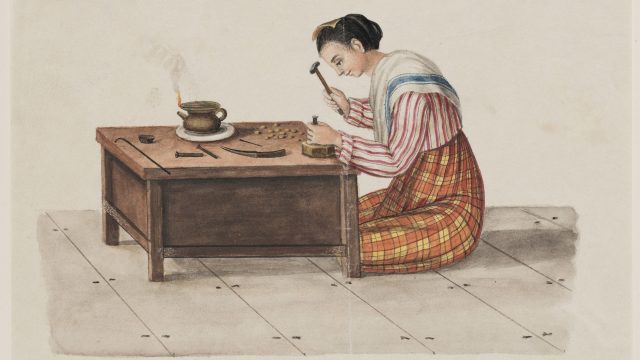
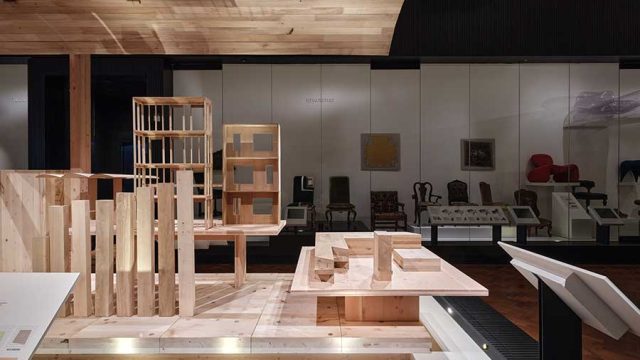
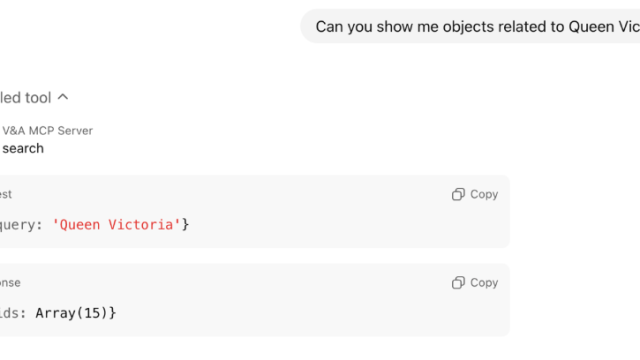
This sounds brilliant and very timely. All the very best with the project :)
Super cool article and the project. Such is the work that keeps the world going. :)
This is such amazing work! Wishing you all the best Lokesh!
Wishing you all the best and thanking you for your dedication to this wonderful area.